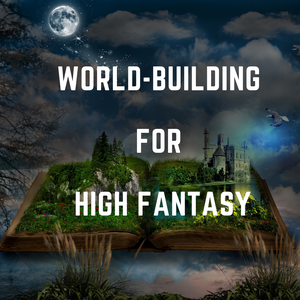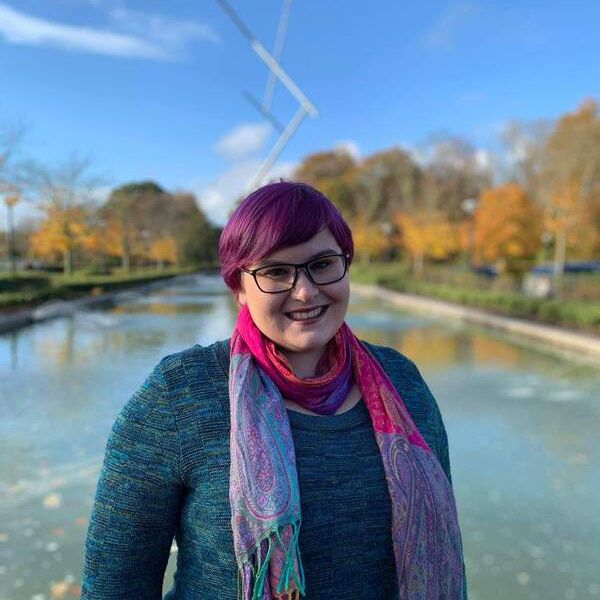Guest post by Eve Taft When I was a child, I judged a story by how much I loved its world, and I judged its world by how much I could envision beyond the book itself. I knew there was much more to Narnia than I saw, plenty of glens of the Hundred Acre Woods that didn’t grace Milne’s pages, hundreds of hobbit-holes we never visited. The worlds I loved were complete, with story existing in them, rather than cheap set dressing with nothing solid behind it. Now that I’m an adult with education in creative writing…I think the same thing. One of the main attractions for readers (and writers, let’s be real) of high fantasy is the worlds we get to visit. We love vacationing to Westeros and Earthsea, to galaxies far, far away. And I enjoy creating worlds to escape into, so here’s my take on how to do it well, to make a setting that readers assume goes beyond your pages and love enough to write fanfiction about. What follows is my basic philosophy of world-building and some categories you may want to think about. The short version is this: ask questions, and the answers will build your setting. Start here: forget everything you know. Don’t take earth things for granted—you’re not in Kansas anymore. Keep some basics about how people and societies work: humans survive, bond, interact with their environment, and create. Most of all, people affect each other, in direct or indirect ways. Humans or elves or whatever creatures you’re writing about do the same thing in fantasy worlds. Their geographies, histories, and evolutionary biology will evolve from and impact upon their surroundings, as ours do. And here’s where you get wiggle room, as much or as little as you’d like. Concepts that are cemented into our society (anything from currency to the fact that humans generally live above ground) aren’t necessarily present in your world. You get to play god here. And it’d be a shame to throw such an opportunity away by simply tossing your characters into a medieval setting and choosing a Latin-language-based magic system because it’s worked for so many other people and you’re not confident enough to come up with something new. Which isn’t to say “done before” means bad. Everything has, to some degree, been done before. I’m just saying, keep your options open. BasicsThink about the first things you learn when you’re a child, then ask if those things are true. Is the world round? This doesn’t have to be the case, as evidenced in Discworld and Narnia. Follow-up questions: how do day and night work? What is the configuration of sun(s), moon(s), and stars? This also informs how time works: do your characters have 24-hour days, 365-day years with four seasons? George R.R. Martin does some interesting stuff with seasons, as, I hear, does N.K. Jemisin, though The Fifth Season is still on my TBR pile. So does Hello From the Magic Tavern, a podcast I love so much I’m going to mention it, even though it’s not technically high fantasy because the characters bop back to earth occasionally. Once you have a planet (or loose interpretation of one), what’s your map like? How much of the world exists in your characters’ knowledge? I’m terrible at drawing, but there’s some nifty programs like Inkarnate to help, and if you’re cool enough to draw your own maps, then so much the better. What kinds of resources do different countries/cities have? Who provides what for who, and how does that impact wealth and power structures? (This can also be an opportunity to create interesting class systems for your characters to contend with.) You’ve got a world. Who lives there? Is your main character (start there) human? If the answer is “no” or “sorta,” then invariably, they’re going to be acting as foils for humanity. We can’t get too far away from ourselves. Still, non-human characters give you a lot of leeway as far as cool biology stuff goes, so explore that in depth. Do your guys have two hearts like Timelords? How do they age? If humans are at all involved, what does being human mean in this world? What other species are there, and is there any sort of hierarchy? Who can talk, who is sentient, who is in charge of who, who domesticates who, who has what kind of powers? If you go for any reliable, public domain fantasy races like elves, dwarves, or goblins, think through all these questions for them, too. Elves don’t have to be sophisticated beings with long lifespans, and dwarves don’t have to like booze and gold above all else. Try sticking your orcs in trees or your elves in the ocean and see how they do. But creating the stage and the players is only step one. Once you have a world—unless you’re writing a creation myth—things will have happened in it, and that will inform a lot of what’s going on now. Thus bringing us to section two…. History and AnthropologyRemember “History of Japan?” Well, that guy (Bill Wurtz) made one for the world. You could do worse than watching it and sketching up something similar for your own setting. This should generate more questions that inform your world. You’ll get to economics and politics here: who governs whom, and how? Have economics systems like capitalism, communism, or socialism taken root? What needs do these societies have, and how do they fulfill them? How do your characters perceive demographic information, such as ethnicity, sex, age, or gender? How do these perceptions vary from place to place and culture to culture? What about traditions that humans have evolved like family and societal structures? Do humans monogamously pair-bond, as we seem to have found evolutionarily adaptive here on earth? What kinds of sexualities do people present, and are there rules around them tied to legality or religion? Many of us, myself included, are from a nuclear family structure in a society where heterosexual monogamy is the norm. This has largely been the case in the western world since the rise of Christianity, and if you’d asked me ten years ago, I’d probably have said “Well, seems like that’s human nature, I guess.” However, looking at, say, ancient Roman society, we often see same-sex pair bonding in addition to or instead of heterosexual bonding. And they would have said the same thing: “That’s probably just human nature.” Human nature, whatever that is, is linked to what society wants, needs, and demands. Decide what the norms are for your world, and then, for a good time, make your characters buck them. These questions might be difficult or uncomfortable to sit with and answer. They might reveal the arbitrary nature of concepts we accept as basic truths. This is the heart of why imaginative fiction is so important: it makes us ask what could be. Technology and ScienceThis is where a lot of writers follow the beaten path and give their characters access to roughly medieval-Europe levels of technology, usually kept quite separate from the magic system. There are a lot more options, including melding magic, tech, and biology together. Something I’ve found helpful is to look at various contexts: does my society have the achievements of, say, 1920s London? Are we working with late-stage Inca Empire tech? You don’t have to make your characters literally reinvent the wheel, but where they’re at scientifically is totally up to you. Other places to look for inspiration include various kinds of -punk (steampunk, cyberpunk, dieselpunk, solarpunk). Here are a few big events and inventions that have shaped our current civilization (this is by no means a complete list). They can be good jumping-off points for events that may or may not have happened in your world. Discovery of fire The Agricultural Revolution Invention of the wheel Numerals, particularly the Arabic numeral system, and along with them, mathematics Running water, sewage systems, irrigation Contraceptive technology Colonization The printing press Electricity The Industrial Revolution Antibiotics Nuclear power The internet Climate change and the effects thereof The invention and mainstream adoption of social media MagicYou generally make your magic system out of the whole cloth. Magic systems need rules, a power source, and limitations. Can everyone learn magic, or is it an innate trait? If everyone can, why hasn’t everyone (unless they have)? If your characters are magical, and they have a problem, you should always be able to answer the question: “Why can’t they just solve it with magic?” Different authors manage their magic in different ways. The Inheritance Cycle keeps its magic from being OP by basing it on a fundamental exchange: the energy it takes to do something leaves your body, whether you use magic or do it manually. Lifting five pounds always equals lifting five pounds. Proximity also matters. In Earthsea, LeGuin’s wizards use the “true names” of things to gain power over them, which takes study. Harry Potter characters can’t make food out of nothing or bring people back from the dead, and magic takes concentration and know-how. Dungeons and Dragons wizards have spell slots. Make a system, give it cool shit, give your cool shit limits. And a word to the wise: everyone loves a good loophole. SpiritualityReligions exist to answer questions. The most basic of these questions are 1. How did we get here? and 2. What happens when we die? Unless your setting has found concrete answers to these questions, they’ve probably come up with some sort of philosophy. Actually, depending on how large your world is, they’ve probably come up with several. What they’ve come up with is probably pretty important, as religion often guides a society’s values and taboos. And, unless you have nice, docile, agreeable characters (what’s that like?), throughout history, these religions have changed, splintered off, fought each other, melded each other’s traditions, evolved, and generally gone all over the place. Religions have mythos, day-to-day rituals, rites of passage (birth, coming-of-age, death, etc.). Religious people have varying levels of devotion. Religious organizations have varying levels of corruption, power, and relevance. These are all things to consider. If you’re not interested in coming up with religion, your characters can be lapsed Fantasy-Catholics or Agnostics, but chances are, they’ve interacted with religion in some shape or form. If your novel is an allegory for a particular faith, fantasy is a great vehicle to do this, but it’s pretty rude to caricature another faith as your bad guys and being preachy is a surefire way to get your book put down. Handle fables like this with care: they can be done well if you have a good grasp of subtlety. What Next?Okay, you’ve created this amazing setting, and everyone absolutely has to hear about it, from the magic system to the national anthem of your character’s home country. Right? Unfortunately, no. You do not want to spend the first ten pages of your novel painstakingly explaining all of this. Well, you do, but readers don’t. The absolute worst part of world-building is leaving most of it in your head and letting it come out naturally as you write. In order to head off the desire to just write a visitor’s guide to your setting, you’re going to need to tell someone about it. Get a friend who’s into this kind of thing and talk their ear off. Explain everything (and, if they’re a writer, let them return the favor once in a while. If they’re not, buy them a pizza or something), get it all out of your system. An added bonus is that they’ll probably poke holes and ask questions and make the world better. Even if they don’t, once you finish talking, you’ll have let your creation out into the world to breathe. Then start writing. When you need to explain things, explain them. Decide what your characters and narrator(s) know and what they’d think to explain. Weave in details readers need subtly—this is a fiction novel, not an encyclopedia (although, if you get enough traction, you might get to write one a la A World of Ice and Fire, which I can only imagine is a delightful process). If you know your world, then chances are, you’ll intuitively bring in what you need. Overexplaining typically happens when you’re not sure of yourself, rather than when you’re confident. Have a little faith in yourself and your setting. And, if all this seems like way too much work, then rest assured: there’s a premade world all around us you can write about, and that one’s pretty interesting too.
1 Comment
|
AuthorArielle Haughee is the owner and founder of Orange Blossom Publishing. Categories
All
|
Proudly powered by Weebly



 RSS Feed
RSS Feed